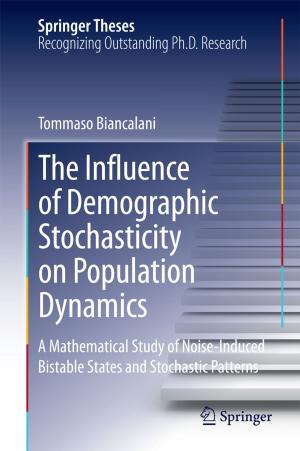Disciplining the Undisciplined?
Perspectives from Business, Society and Politics on Responsible Citizenship, Corporate Social Responsibility and Sustainability
Business & Finance, Business Reference, Business Ethics, Nonfiction, Science & Nature, Science, Biological Sciences, Environmental Science| Author: | ISBN: | 9783319714493 | |
| Publisher: | Springer International Publishing | Publication: | January 29, 2018 |
| Imprint: | Springer | Language: | English |
| Author: | |
| ISBN: | 9783319714493 |
| Publisher: | Springer International Publishing |
| Publication: | January 29, 2018 |
| Imprint: | Springer |
| Language: | English |
This book explores how the interrelated concepts of responsible citizenship, corporate social responsibility (CSR) and sustainability can be interpreted, researched and taught. It contributes to the much-needed debate on the role of universities – and business schools in particular – in the context of rising social and environmental stakes and growing calls for 'doing business the right way'. The book offers diverse perspectives on the concepts of responsible citizenship, CSR and sustainability, with individual contributions focusing on the conceptual implications for specific disciplines, exploring associated challenges and opportunities, and raising methodological and theoretical concerns for the teaching and research of these concepts laden with complexity and ambiguity. The book is divided into three major parts, the first of which presents conceptual, theoretical and ethical issues. In turn, part two explores specific disciplines' perspectives. Lastly, part three presents hands-on experiences from the field. Thanks to this threefold approach, the book not only offers a guide to direct future research, but can also be used as a text for advanced courses on responsible citizenship, CSR and sustainability.
This book explores how the interrelated concepts of responsible citizenship, corporate social responsibility (CSR) and sustainability can be interpreted, researched and taught. It contributes to the much-needed debate on the role of universities – and business schools in particular – in the context of rising social and environmental stakes and growing calls for 'doing business the right way'. The book offers diverse perspectives on the concepts of responsible citizenship, CSR and sustainability, with individual contributions focusing on the conceptual implications for specific disciplines, exploring associated challenges and opportunities, and raising methodological and theoretical concerns for the teaching and research of these concepts laden with complexity and ambiguity. The book is divided into three major parts, the first of which presents conceptual, theoretical and ethical issues. In turn, part two explores specific disciplines' perspectives. Lastly, part three presents hands-on experiences from the field. Thanks to this threefold approach, the book not only offers a guide to direct future research, but can also be used as a text for advanced courses on responsible citizenship, CSR and sustainability.















